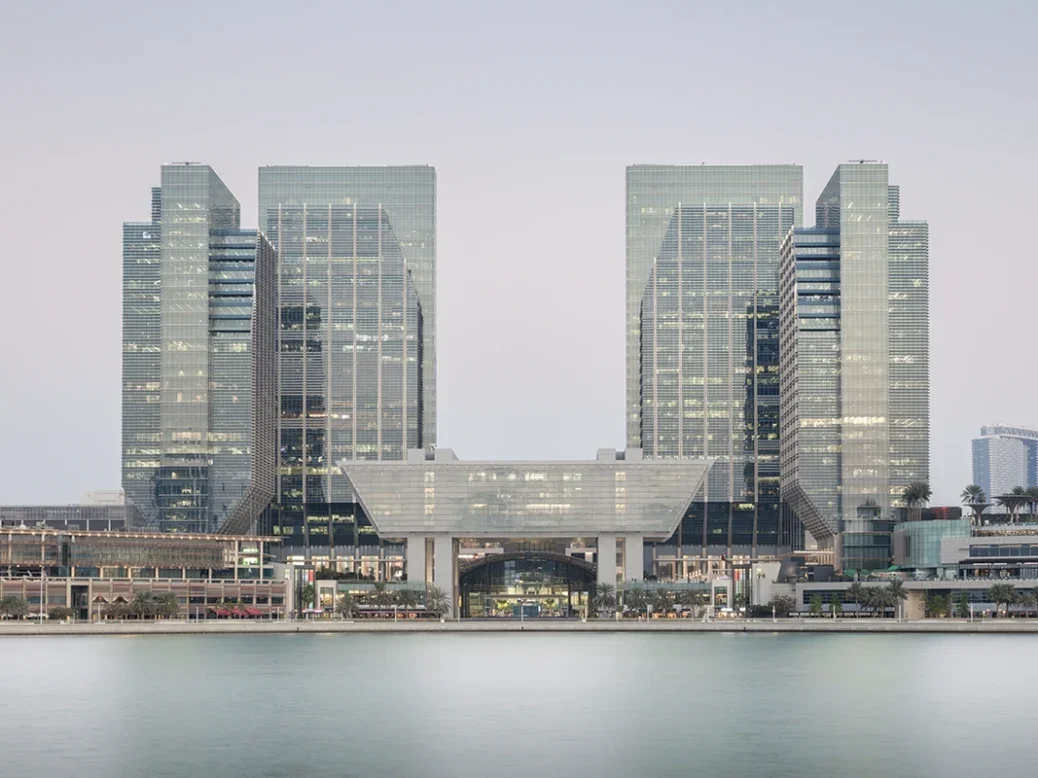
Is the UK on the verge of a millionaire exodus? Wealth experts at Henley & Partners calculate, in the past seven years, some 16,500 millionaires have left the UK to relocate their businesses and tax affairs to more wealth-friendly jurisdictions.
Many predict this shift will continue, with the influential UBS Global Wealth Report suggesting that the UK will see its millionaire population fall by 17 per cent over the next five years. But where will they go?
While plenty of jurisdictions have sought to expand their appeal to mobile HNWs, many of the most reliable indicators point to Abu Dhabi – the capital of the United Arab Emirates – as one of the most attractive destinations for millionaires, centimillionaires, billionaires and their family offices.
Now the city is well-positioned to benefit from the movement of wealth from the UK.
Indeed Henley & Partners estimates that, in stark contrast to London, Abu Dhabi’s HNW population has been rising throughout the past decade: with the number of millionaires based in the emirate increasing by 75 per cent since 2013.
Centimillionaires have been relocating too, with a separate analysis predicting that, by 2040, Abu Dhabi’s centimillionaire population will have risen 150 per cent, from its current level of 68 to more than 150.
What is driving this great wealth migration? Abu Dhabi has long been garnering a reputation for its low-tax environment, high standard of living, and open attitude towards expats – all factors which remain at the forefront of the emirate’s identity. But wealth experts say that there is a new chapter in its story of growth and development.
‘As one of the wealthiest cities globally, it naturally attracts those seeking a secure environment for their assets and families,’ says Philippe Amarante, the head of Henley & Partners’ UAE office. ‘Yet it is more than a matter of HNWs just leaving higher-tax regions like the UK and elsewhere in Europe; Abu Dhabi is proactively shaping its appeal towards these people and their families.’
At the heart of this evolution is a transformative vision as the emirate’s embrace of capital, science, innovation and technology has helped turn Abu Dhabi into a vital destination for the world economy and a beacon to entrepreneurs and innovators alike.
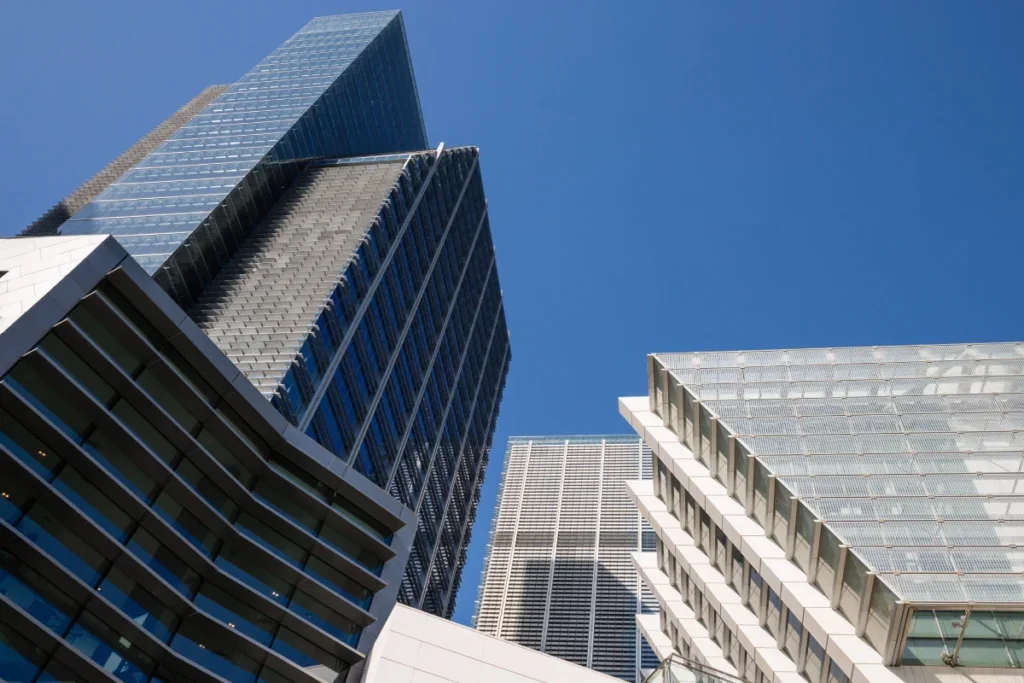
Capital of capital
In October 2024, Abu Dhabi achieved one of its biggest milestones as a financial centre to date, when a new report from GlobalSWF confirmed that the city was now home to the largest concentration of sovereign wealth capital in the world – with total assets held by Abu Dhabi-based sovereign wealth funds (SWFs) totalling more than $1.7 trillion.
But it isn’t just the vast quantity of capital that has captured the attention of global markets. Abu Dhabi-based SWFs (which include Abu Dhabi Investment Authority, Mubadala and ADQ) have also been establishing themselves as some of the world’s most active and ambitious dealmakers – both within the UAE and beyond.
During the first three quarters of 2024, Abu Dhabi-based SWFs collectively accounted for approximately $36 billion in deals. This accounted for more than two-thirds of all investment from GCC-based SWFs, and more than 25 per cent of the total SWF investment across the world.
Abu Dhabi-based funds are also leading the way in which SWFs shape their investment strategies and interact with global markets. For example, Mubadala has become recognised as a world leader in partnering with major third-party investors (including Apollo, KKR and Blue Opal) having raised more than $18 billion in equity from private investors.
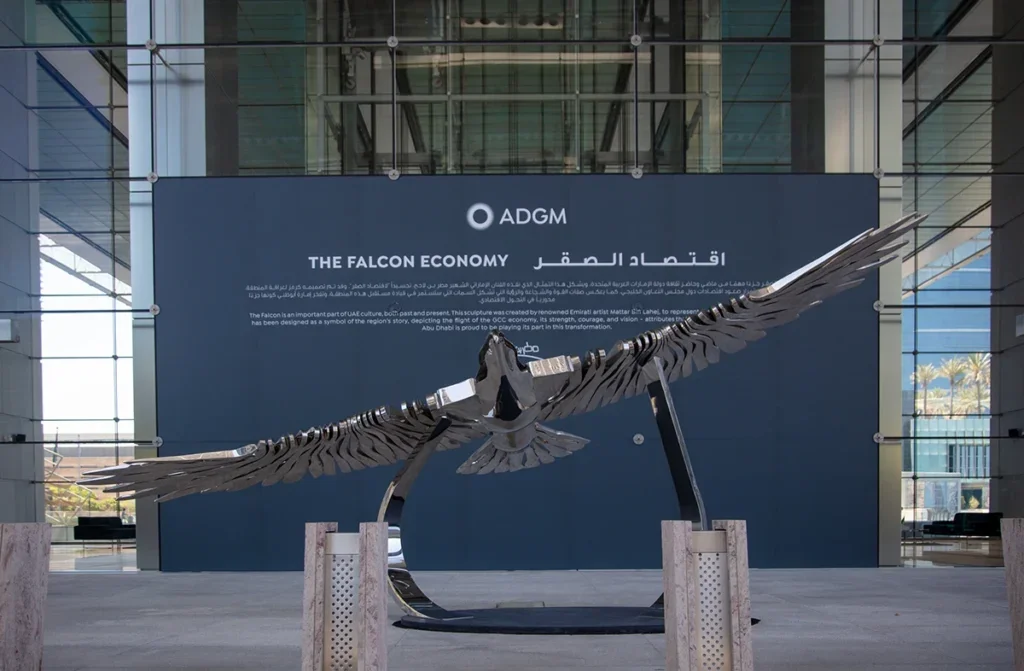
On a thematic level, Abu Dhabi SWFs have been pivotal in investing in artificial intelligence and related technologies, including within the UAE and the wider Gulf region. Earlier this year, Mubadala partnered with Abu Dhabi-based AI pioneers G42 to launch MGX: a new $100 million investment fund to drive deals in semiconductors, data infrastructure, robotics, and AI-powered life sciences.
Abu Dhabi is often referred to as a Falcon Economy, a concept that highlights the UAE region's economic growth and its macroeconomic stability.
Hedge funds, asset managers, law firms
ADGM has also become the preferred regional hub for some of the world’s largest and renowned asset managers. From Q3 2023 to Q3 2024, assets under management within ADGM were calculated to have grown by 215% per cent, boosted by a surge in wealth managers opening offices.
Much of this transformation has its roots in ADGM, an award-winning international finance centre and free zone located at the heart of Al Maryah Island. Since its establishment in 2015, ADGM has played a pivotal role in building Abu Dhabi’s reputation as one of the world’s most significant financial capitals.
The trend of asset managers and hedge funds moving to ADGM continues to gather pace. In Q3 2024, ADGM issued 759 new licences to firms looking to operate there, up 33 per cent on Q3 2023. Significant new arrivals include the American asset managers PGIM (assets under management $1.27 trillion) and Nuveen (AuM $1.2 trillion), as well as Seviora, Blue Owl and Fiera Capital.
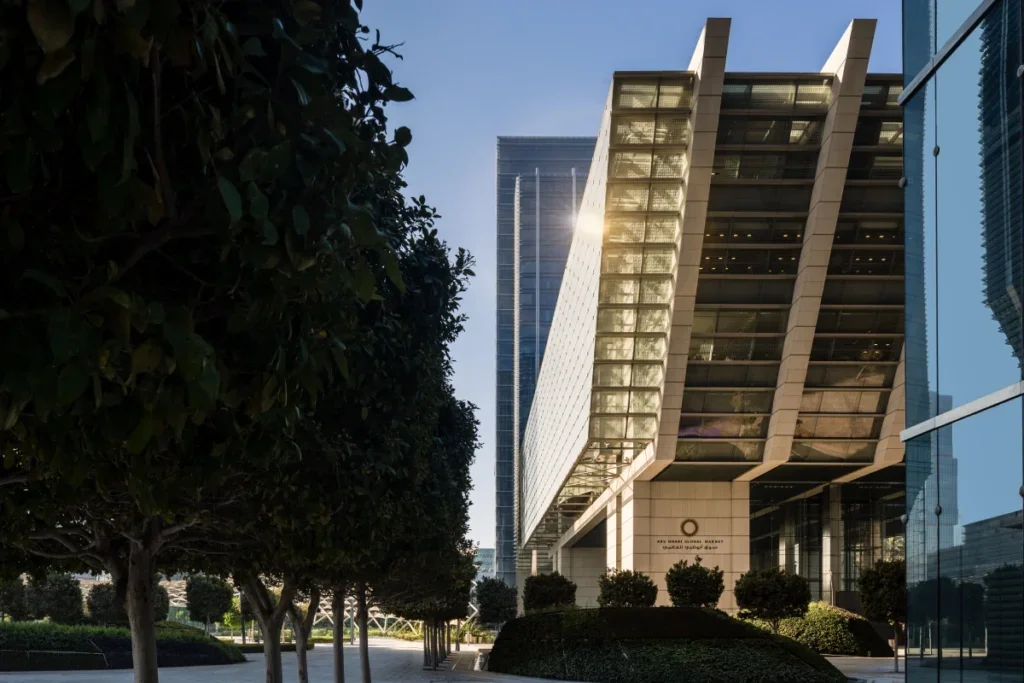
Hedge funds and family offices have also been opening shop in Abu Dhabi. After opening its ADGM office last year, macro hedge fund Brevan Howard has now moved around one third of its total assets (around $10 billion) into the jurisdiction.
Meanwhile, a 2023 study from the wealth advisory firm M/HQ found that there were more than 200 family offices in Abu Dhabi – up from fewer than 50 in 2018. Prominent family offices include Dalio Family Office (the family office of the legendary US investor Ray Dalio) and Scimitar (the Middle East-based family office of Leon Black, the billionaire co-founder of Apollo Global Management.
‘Abu Dhabi has started to attract an increasing share of global capital, supported by a buoyant IPO market,’ says Matt Green, head of research for the MENA office for CBRE. ‘This has led to an influx of new global corporate tenants into the commercial office market, including investment banks.’
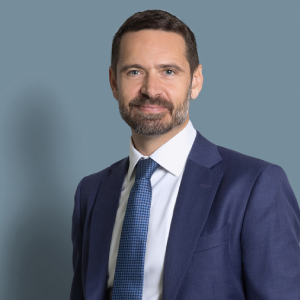
There is also noticeable activity with professional services, most notably from international law firms strengthening their Abu Dhabi presence. This trend has helped move occupancy rates within ADGM Square from below 80 per cent before 2019 to almost full capacity in the final months of 2024.’
Legal framework
One factor increasing Abu Dhabi’s appeal to UHNWs and asset managers alike is ADGM’s unique legal system, which is the only jurisdiction in the Middle East to give direct effect to English common law. This means that established commercial practices from the English courts will set a precedent for how analogous cases are decided in ADGM, similar to how the legal systems operate in Singapore and Hong Kong.
[See also: Spear’s jets off to Abu Dhabi Finance Week 2024]
This system differs from other systems in the UAE, notably the Dubai International Financial Centre. In the case of the DIFC, English common law can be applied where local laws do not provide an answer to a particular question before the courts. In ADGM, by contrast, English common law is presumed to apply.
This has allowed a number of statutes dealing with company law to be lifted directly into ADGM's legislative body (with minor modifications), giving parties more confidence that any disputes will be solved predictably and in a transparent and effective way.
'ADGM achieves extraordinary levels of legal certainty by adopting the English common law system of precedent. Legal certainty is the lifeblood of global commerce,' says Barnabas Reynolds, Global Co-Head of Financial Services Regulatory at the multinational law firm A&O Shearman.
ADGM has also succeeded in developing some of the most innovative and business-friendly laws on earth. One example is ADGM’s acclaimed Special Purpose Vehicle (SPV) legislation – perhaps the most useful legal structure for UHNWs, HNWs and corporate entities looking to relocate their assets to Abu Dhabi.
SPVs are designed to be flexible and robust, while also providing the highest standards of tax efficiency. As ADGM-registered entities, SPVs are eligible for UAE tax residency and thus can benefit from the country’s wide network of double tax treaties. The system also allows for the relocation and redomicile of companies from other jurisdictions.
In recent years, there has been a huge expansion in the number of UHNWs, fund managers, family offices and corporations utilising the SPV system in order to ringfence certain assets and liabilities. A study by M/HQ revealed that there are currently more than 5,000 SPVs registered in ADGM, including filings from numerous prominent UHNWs. According to reports, these include cryptocurrency investor Changpeng ‘CZ’ Zhao; Egyptian billionaire Nassef Sawiris; and the family of Gautam Adani, chair of the eponymous Adani Group and the second-richest person in India.
[See also: Abu Dhabi’s ascension: hedge funds invest as UAE cements reputation as global hotspot]
‘ADGM SPVs support high levels of confidentiality and privacy by not requiring public disclosure of beneficial owners or financial details,’ says Alessandro Belluzzo, a London-based lawyer who has advised numerous HNW clients looking to relocate to Abu Dhabi and elsewhere in the UAE. ‘This is a major advantage for family offices or private investors managing high-value assets.
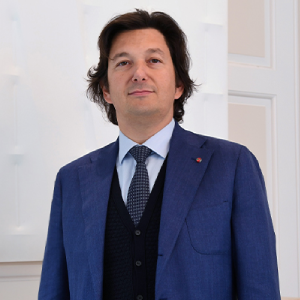
Golden Visa programme
Another attractive option for HNWs and high-skilled workers is the UAE’s prestigious Golden Visa programme, which is designed to offer longer-term residency for international talent looking to work, study or invest. Each visa is valid for ten years, allowing holders to focus on their investment, their business or their research interests in one of the world’s most dynamic knowledge economies.
‘Following recent changes, the Golden Visa now extends beyond investors to include skilled professionals, scientists, researchers and even exceptional students,’ says Belluzzo. ‘Those holding such a visa will gain exclusive benefits, such as priority in healthcare and education access, incentives for business and property ownership, and certain travel exemptions. Discounts and priority in government services further enhance its appeal, providing a comfortable, well-supported lifestyle that perfectly aligns with the needs of HNWs.’
Low tax environment
In common with other residents of the UAE, Golden Visa holders will also benefit from the famously low tax environment (with no tax on individual income or capital gains). The country’s highly-competitive corporation tax structure means that companies will pay a flat 9 per cent rate on taxable income over AED 375,000 (£78,600), with special exceptions for small businesses and companies operating in a recognised UAE free-zone.
A particularly popular route to obtaining a Golden Visa is buying property in the UAE. The current eligibility criteria means that anyone purchasing a home valued at a minimum of 2 million AED (£420,000) can apply for a Golden Visa to provide longer-term certainty for them and their family members.
Property and real estate
Anyone looking for a suitable luxury property in Abu Dhabi will not be short of options. The city's continued rise as both a financial and cultural hub has coincided with a selection of new developments seeking to provide the highest standards of living within easy reach of Abu Dhabi’s commercial districts and main attractions.
Take Reem Hills, a new integrated development from Q Properties, offering five-, six- and seven-bedroom villas on a natural island blessed with elegant and serene surroundings. Owners will enjoy exceptional views of the mangroves and sandy beaches within a family-friendly gated community offering exceptional amenities.
Just over the water on Saadiyat Island, Abu Dhabi’s largest developer, Aldar, has just unveiled its Mamsha Palm development. Designed by renowned Japanese architect Kochi Takada and situated at the heart of one of Abu Dhabi’s financial cultural districts, the development boasts 44 exceptional properties, ranging from two- and three-bedroom apartments to duplex sky villas.
Aldar says that each residence is intended to be testament to ‘thoughtful design’, with interiors that embody the principles of Japanese minimalism — ‘harmonious, uncluttered, and meticulously crafted’. The use of natural materials and muted tones creates a sense of calm, offering residents an elevated sanctuary away from the bustle of daily life.
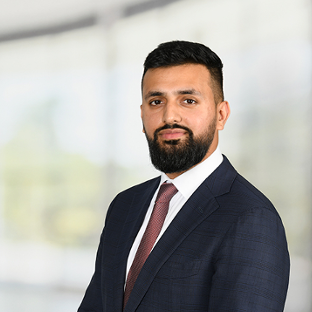
‘Mamsha Palm has offered me a unique opportunity to create something never seen before in the Middle East,’ commented Kochi Takada upon the completion of the project. Aldar expects the development to be particularly popular with overseas investors looking to relocate to Abu Dhabi.
The developer is also looking to cater to the ultra-prime market, including UHNWs. In March 2024, Aldar announced it had completed the sale of Abu Dhabi’s most expensive property to date: a 137 million AED (£7.8 million) penthouse at the developer’s acclaimed Nobu Residences.
Those investing in Abu Dhabi property have good cause to be optimistic about their assets, with the real estate market continuing to demonstrate momentum. According to the ValuStrat Price Index, Abu Dhabi real estate prices rose by 4.2 per cent in 2023. The volume of sales has been increasing too, with a 40 per cent jump in off-plan sales transactions compared to the year before.
‘The real estate market has been on the up with steady growth over the last few years,’ says Ali Ishaq, a residential sales director in the Abu Dhabi office of Savills. ‘The market has benefited from Abu Dhabi being in the headlines as a strong destination for investors, but it is still in the growth phase and we’re only scratching the surface of what’s to come.’
Culture & lifestyle
What is life like for those who have already made the move? Abu Dhabi continues to make headlines for its exceptional standards of personal safety. Earlier this year, data analysts Numbeo revealed that the city had once again topped its index of the world’s safest cities for the eighth time. Surveys suggest that over 90 per cent of foreign residents feel safe when walking at night.
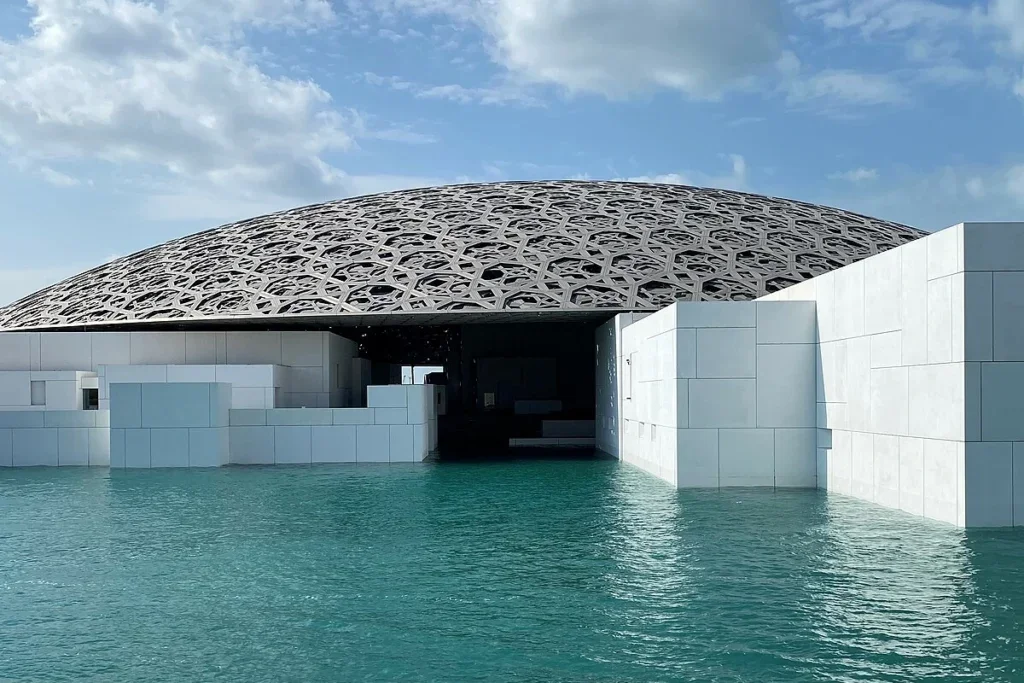
Residents will also benefit from a thriving cultural scene, with the emirate securing its reputation as one of the most important regional cities for sports and entertainment. While the stunning Abu Dhabi Louvre has long been a staple of the cultural scene, it will soon be joined by several other major attractions – including the new Guggenheim Abu Dhabi and the highly-anticipated Zayed National Museum.
Meanwhile on Saadiyat Island, families will soon enjoy one of the world’s most unique creative attractions in teamLab Phenomena Abu Dhabi. The eye-catching creative space (designed by local architects and spanning some 17,000 square metres) is described as ‘a home for infinite curiosity’, taking visitors on their own immersive journey through cutting-edge installations.
[See also: Cultural Desert: Inside the Arabian art boom]
When it comes to sports, the celebrated Abu Dhabi Grand Prix, which takes place on the iconic circuit on Yas Island, will mark its fifteenth outing this year, having cemented its position as the final race of the Formula 1 season. The event has also become a huge entertainment draw, with live performances from the likes of Foo Fighters, Eminem and Shania Twain.

Capitalising on the success of the Grand Prix, Abu Dhabi’s Department of Culture and Tourism has also signed a groundbreaking deal with the world’s biggest basketball league (the NBA) to host pre-season matches in Abu Dhabi. The emirate also enjoys a longstanding partnership with the world-renowned Ultimate Fighting Championship, with star-studded events (Fight Island) taking place annually on Yas Island.
From capital to culture, sports to science, Abu Dhabi is quickly establishing itself as one of the world's most influential and innovative cities. Given that, it is hardly surprising that the city is increasingly on the radar of HNWs and entrepreneurs – both from the UK and elsewhere – as they look for the perfect location to grow their wealth and invest in themselves and their families.
If HNWs are looking for a home that can match their ambition, creativity and dynamism, they’ll find it here in Abu Dhabi – a city that is truly in a league of its own.

